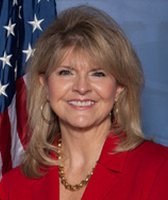Stand up for the facts!
Our only agenda is to publish the truth so you can be an informed participant in democracy.
We need your help.
I would like to contribute

In November, Rep. Will Weatherford, R-Wesley Chapel, right, was formally elected speaker of the Florida House. (Times photo)
TALLAHASSEE — The 160 members elected to the Florida Legislature begin their work Tuesday, kicking off an annual two-month session that will be full of pomp, political spin and — most likely — a few fact-checking whoppers.
Don’t worry, PolitiFact Florida will have the Truth-O-Meter ready when the politicians start talking. We’ll be in the committee rooms, at the press conferences and in the press galleries.
Here’s a brief guide of what we’ll be watching.
Expanding Medicaid
Gov. Rick Scott now supports expanding Medicaid under President Barack Obama’s health care law, a move that would insure about 1 million low-income Floridians.
Scott can’t make it happen on his own. The decision rests with the Legislature, and the Republicans in control are divided, especially in the Florida House (Democrats, of course, want it).
Expect to hear a lot of talk about cost. Medicaid is a joint federal-state program for the poorest Floridians, with the federal government chipping in more than half of the cost. Still, the program is gobbling more than one-third of the state budget, and some fear that widening the safety net will only lead to bigger budget constraints.
To be sure, expanding Medicaid to more poor Floridians will eventually cost the state something. But some estimates have either overstated the state’s burden or failed to acknowledge that the federal government will pick up 100 percent of the cost of insuring new enrollees through 2016. The feds will gradually dial down their share, to 90 percent of the costs in 2020 and beyond.
Before changing his mind and supporting the expansion, Scott grossly exaggerated the state’s share, putting it at $26 billion over ten years. PolitiFact Florida rated that claim False. The nonpartisan Kaiser Family Foundation put the state’s incremental impact over 10 years at $5.4 billion, with the federal government’s share at $66.1 billion.
Elections, campaigns
Did you hear the one about Florida and the 2012 election?
If you missed the late-night cracks about our state’s performance, maybe you caught Obama talking about it in his State of the Union address, to which he invited 102-year-old Desiline Victor, who said she waited hours to vote in North Miami.
Point is, state leaders get it — they’re expected to make changes to Florida’s election law this year. They are looking to essentially press "undo" on at least part of the 2011 law that knocked the number of days for early voting from 14 to eight.
Senate President Don Gaetz, who voted for the 2011 bill, tried to defray blame for long lines by noting he introduced the amendment that allowed for 96 hours of early voting. PolitiFact Florida rated that claim Half True, as his amendment also gave elections supervisors the choice of offering far fewer hours, 48, than before.
Scott, who signed the bill but later tried to distance himself from it, called on legislators to follow his recommendation of increasing the maximum number of early voting days to 14.
This would allow for "a potential of 168 hours, which I think is the most we’ve ever had" for early voting, he said. Scott carefully chose his words, so we rated his claim True.
Pink Slip Rick, a liberal activist campaign, dismissed Scott’s proposal because it "only mandates 48 hours of early voting." We rated that Mostly True, because it left out that supervisors could also offer more hours.
Pension phase-out?
House Speaker Will Weatherford, R-Wesley Chapel, is pressing to change Florida’s retirement system, which he says is in trouble. He wants to phase out the pension plan by enrolling new state workers in a 401(k)-style investment plan.
He’s called the $132 billion pension fund — one of the nation’s largest — a "ticking time bomb" that will burden taxpayers down the road.
See, several years ago — before the financial meltdown — the pension fund was in the black. But the fund, which fluctuates in value depending on the market, took a big hit from the stock market and has not recovered. For the past four years, there’s been a gap between what the fund is worth and what it owes beneficiaries. Last year, that gap grew to $20 billion.
Democrats and advocates for public workers don’t see the pension as a problem in need of a solution. Florida’s pension fund, while underfunded at 86.9 percent, is above the national average of 75 percent.
They argue state workers have already been hurt by legislative remedies for the pension fund, such as the 2011 law that cut their salaries by 3 percent.
Rick Scott’s priorities
Scott named two priorities for the session: lower taxes on manufacturing equipment and a pay raise for teachers.
Scott wants to remove sales taxes on manufacturing equipment and machinery, which he says will allow Florida to attract more manufacturing jobs. He is also asking the Legislature to widen the exemption for businesses that pay the corporate income tax, from $50,000 to $70,000. PolitiFact Florida is tracking his campaign pledge to eliminate the corporate tax in seven years on our Scott-O-Meter, where it is rated In the Works.
Scott also called on the Legislature to give a $2,500 raise for every public school teacher — which seems at odds with the merit-pay policy he signed into law in 2011, his first bill.
When Scott rolled out his budget recommendations, he said his proposal "includes $10.7 billion in state funding for Florida K-12 schools, the highest state funding level in history." Scott was right on the state’s contribution, but he didn’t mention other sources of education funding. Total spending on Florida schools would still be short of where it was before the economic crash. We rated his claim Half True.
Katie Sanders is covering the legislative session for PolitiFact Florida. Email her ideas for facts to check at [email protected].
Our Sources
See individual factchecks for complete sources.










































